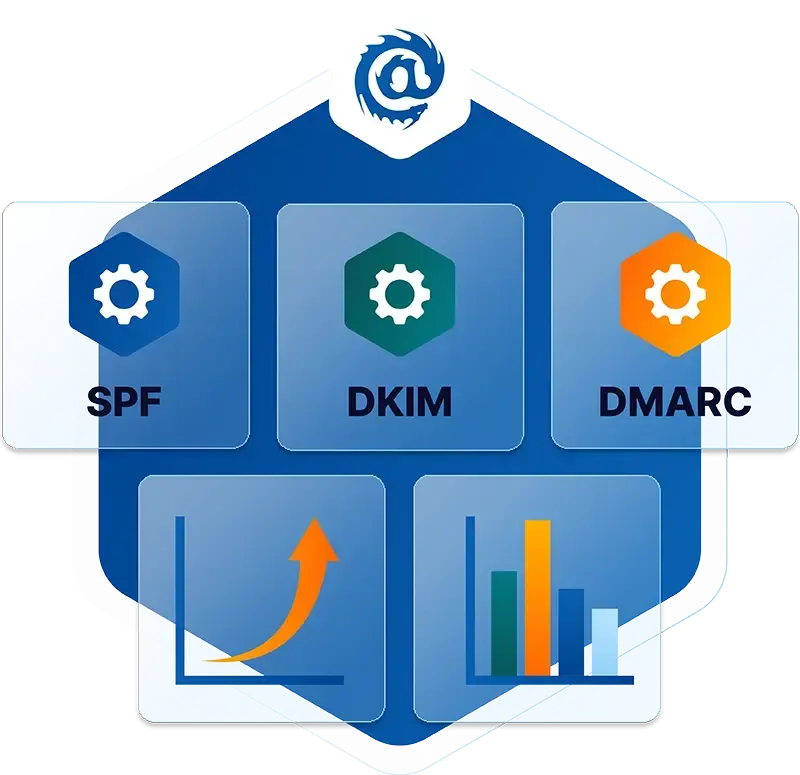Table of Contents
Polymorphic Phishing Attacks Explained
A polymorphic attack is a type of cyber attack that uses a constantly changing code, content, or structure in order to evade detection by security systems. In the context of email, polymorphic phishing attacks may use a different sender's address, subject line, or even the body of the email for each instance of the attack making it difficult for security systems to build rules or establish patterns to protect against. These attacks are commonly highly targeted and are designed to trick individuals into providing sensitive information, such as login credentials or financial information, or to download malware onto their devices.
How does Polymorphic Phishing work?
Polymorphic attacks work by constantly altering the code or structure of the attack, making it difficult for traditional security systems to detect. This is because traditional security systems rely on recognizing and blocking known patterns or signatures of attacks. However, with polymorphic attacks, the code or structure of the attack changes with each instance, meaning that security systems cannot rely on known patterns to detect and block the attack.
Attackers are increasingly leveraging artificial intelligence (AI) to create and scale polymorphic email attacks. By using AI-based tools, attackers are able to automate the process of creating new variants of malware and phishing emails, making it much easier for them to launch more attacks and evade detection by traditional security systems.
One way that attackers use AI to create polymorphic attacks is through the use of natural language processing (NLP) tools like ChatGPT. These tools allow attackers to generate large numbers of unique and convincing phishing emails, making it difficult for recipients to distinguish them from legitimate messages. By using NLP tools, attackers can create phishing emails that use the same tone, language, and formatting as legitimate messages, making them more likely to be opened and acted upon by recipients.
Additionally, attackers are also using AI to optimize the distribution of these polymorphic emails. With the use of machine learning algorithms, attackers can analyze the behavior of their targets and tailor the distribution of the attack to specific individuals or organizations. This can increase the effectiveness of the attack and make it more difficult for security systems to detect.
How to protect against Polymorphic Attacks
Since polymorphic attacks by design are ever-changing, taking on new and unique forms, traditional email protection tools like secure email gateways, which rely on recognizing and blocking known patterns or signatures of attacks, are not able to effectively protect against polymorphic attacks.
Since attackers are utilizing AI and machine learning to launch these threats, to protect against polymorphic attacks, effective email security solutions need to do the same. A few email security solutions combine mailbox-level visibility with AI to meet the polymorphic attacks head-on. These solutions use machine learning algorithms to analyze and understand the user behavior and intent rather than just recognizing and blocking known patterns or malicious content. This allows the AI-based solution to detect and block even unknown and new variants of polymorphic attacks.
IRONSCALES stops Polymorphic Attacks
IRONSCALES is an email security platform that uses artificial intelligence and machine learning to detect and prevent polymorphic email attacks. It uses a combination of behavioral analysis, threat intelligence, and natural language processing (NLP) to analyze and stop unknown polymorphic threat variants. IRONSCALES also provides a human layer of protection to their platform, which allows users to report suspicious emails and enables the system to learn from these reports and improve its detection capabilities over time. Additionally, IRONSCALES uses a form of user authentication within its solution, which verifies the reputation of the sender and the intent of the email, making it harder for attackers to impersonate legitimate senders.
In conclusion, polymorphic email attacks are a highly evasive and sophisticated form of cyber attack that can evade traditional security systems. To protect against these attacks, an advanced AI-based solution such as IRONSCALES is critical in stopping these attacks.
Get a demo of IRONSCALES™ today! https://ironscales.com/get-a-demo/
Explore More Articles
Say goodbye to Phishing, BEC, and QR code attacks. Our Adaptive AI automatically learns and evolves to keep your employees safe from email attacks.

/Concentrix%20Case%20Study.webp?width=568&height=326&name=Concentrix%20Case%20Study.webp)












